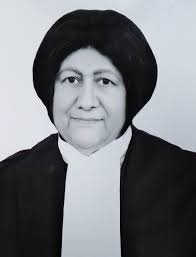After the Division Bench’s spilt verdict, a larger Bench of the Supreme Court will decide whether family courts have the jurisdiction to hear applications for maintenance under Section 3 of the Muslim Women (Protection of Rights on Divorce) Act of 1986(Rana Nahis @Reshma @Sana & Anr vs Sahidul Haq Chisti).
As per an order passed on 18 June 2020, the Bench of Justices R Banumathi and Indira Banerjee disagreed on the jurisdiction to entertain such pleas by the family courts.
While Justice Banumathi held that family courts lacked this jurisdiction, Justice Banerjee took an opposing view. The issue was ultimately referred to a larger Bench for decision, and will be placed before the Chief Justice of India, who will refer it to an appropriate Bench.


Also Read- Appeal against a consent decree for dissolution of marriage is not maintainable:Delhi HC
In a plea challenging the decision of the Rajasthan High Court by which an order passed by a family court was set aside, the spilt verdict had arisen.
A maintenance plea under Section 125 of the Code of Criminal Procedure (CrPC) was converted into an application under Section 3 of the 1986 Act by the Family Court.
In consideration of the matter, Justice Banumathi held that family courts lacked the jurisdiction to hear maintenance plea under the 1986 Act and the same can be filed only before the Judicial Magistrate (First Class) and stated,
“…the Family Court not having been conferred the jurisdiction under Section 7 of the Family Courts Act, 1984 to entertain an application filed under Section 3 of the Muslim Women Protection Act, the Family Court shall have no jurisdiction to entertain an application under Section 3(2) of the Act of 1986.”
Hence, the view taken by the Rajasthan High Court was agreed byJustice Banumathi.
On the other side, Justice Banerjee expressed her inability to get persuaded to agree with Justice Banumathi’s view. The scope and object of the Family Courts Act of 1984, which essentially provides for setting up of family courts for speedy disposal of disputes arising out of marriage and family affairs was delved by Justice Banerjee and in her opinion
“Parliament enacted the Family Courts Act to provide for establishment of Family Courts with a view to promote conciliation in, and secure speedy settlement of disputes relating to marriage and family affairs, and matters connected therewith.“
Justice Banerjee toldthat no intention behind the 1986 Act was to deprive divorced Muslim women from taking benefit of the procedures as under the Family Courts Act or bar family courts from exercising jurisdiction over maintenance matters concerning Muslim Women. Also, was stated,
“A literal and rigid interpretation of the expression “Subordinate Civil Court” to single out divorced Muslim Women seeking maintenance from their husbands, access to Family Courts when all other women whether divorced or not and even Muslim Women not divorced can approach Family Courts would be against of Article 14 of the Constitution.”
Hence, Justice Banerjee opposed the view taken by Justice Banumathi as well as the Rajasthan High Court.
Read the judgement here:

